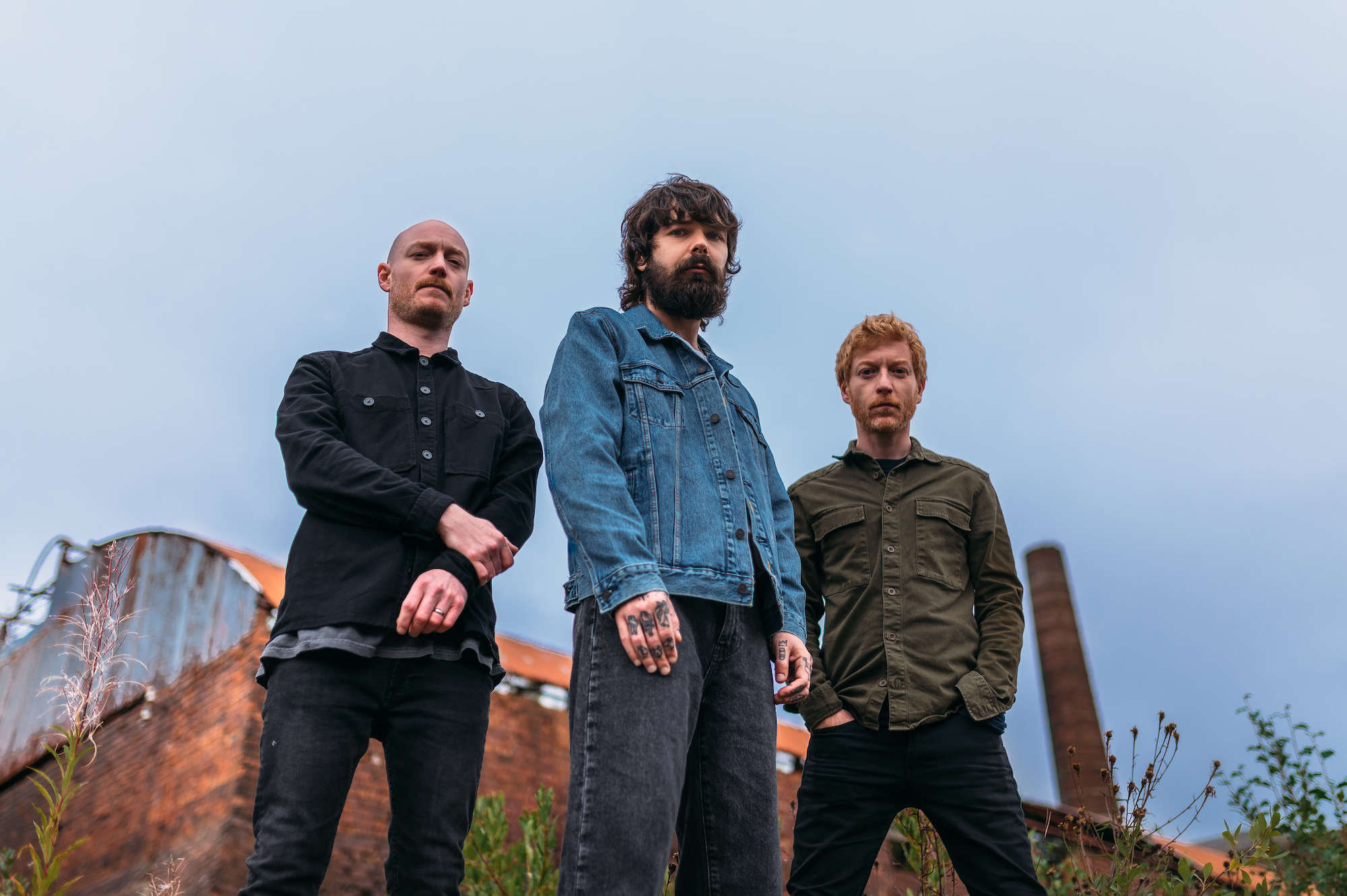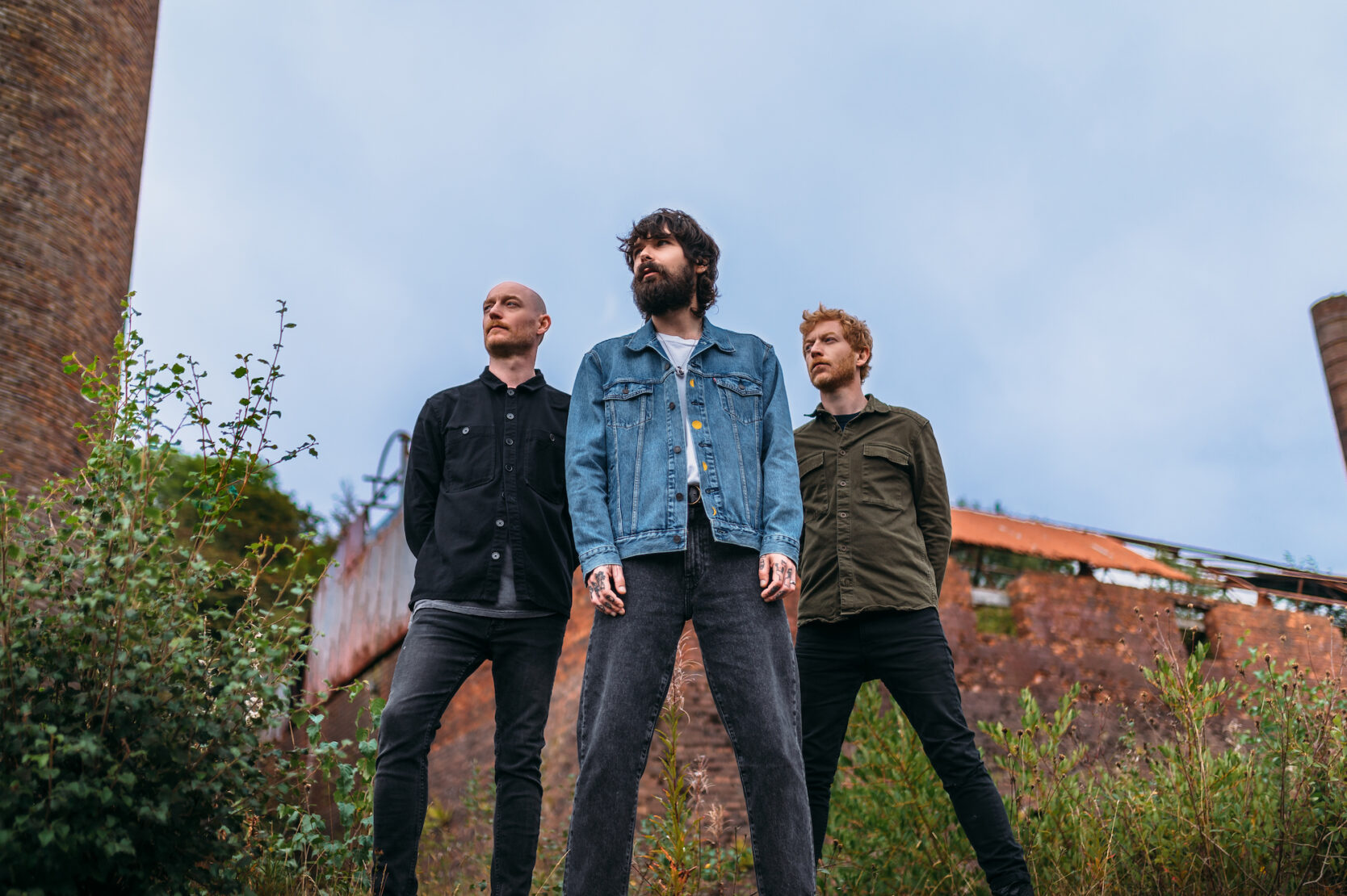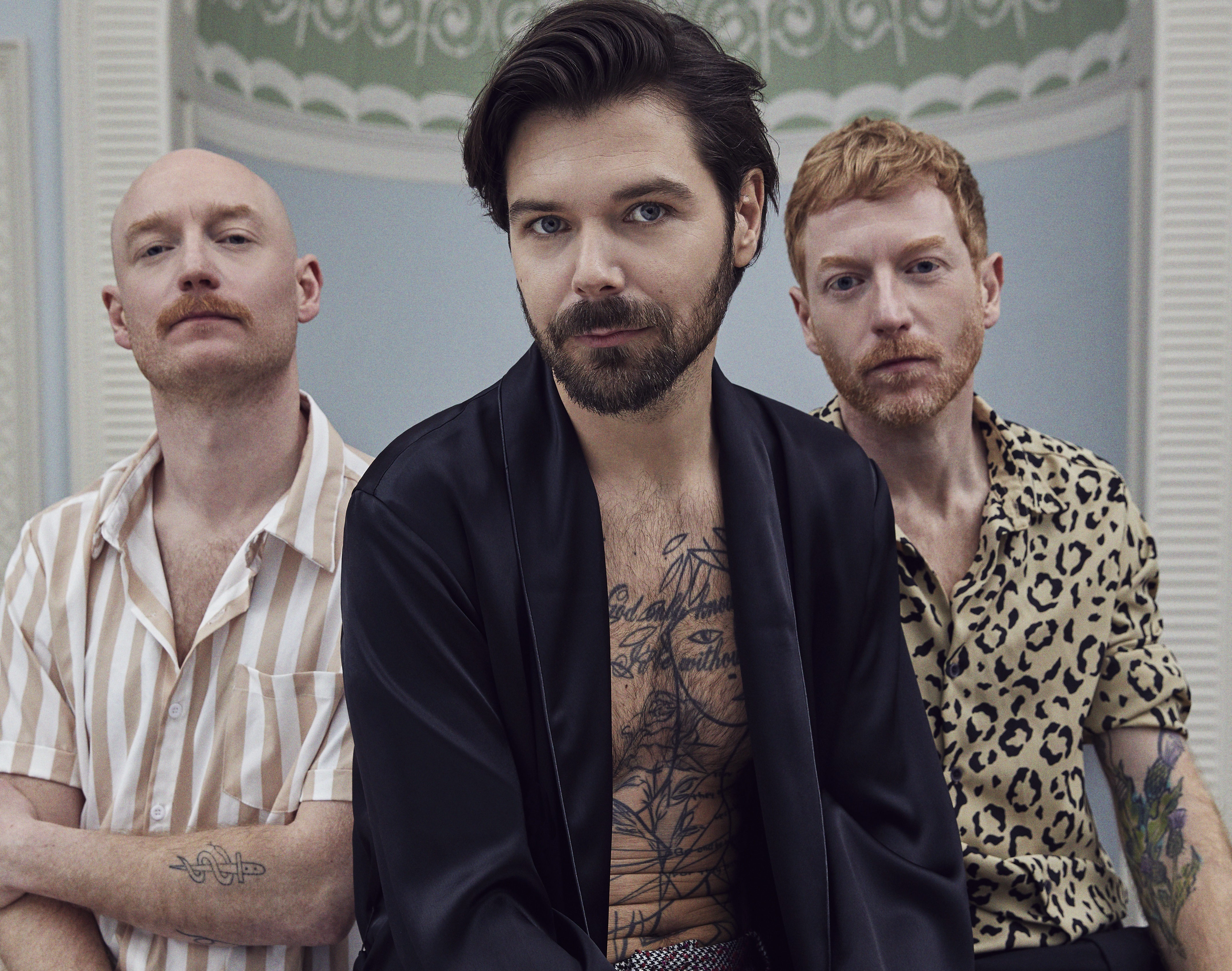Is mankind hurtling to its ignominious end, like so many lemmings over a cliff? Simon Neil is sure he’s seen the telltale signs. And the gallows-humored Biffy Clyro anchor isn’t afraid of covering the extinction topic on his trio’s surprise, lockdown-sculpted new album, The Myth of the Happy Ever After. With no apology, it opens on the anti-Boris Johnson salvo “Dum Dum” (which lambastes the British prime minister for allegedly saying he’d rather have bodies piled up at his Downing Street door than impose another lockdown), then segues into a speed-bag-punchy “Witch’s Cup” (“I just hope when we go/That there’s something deeper”), the dissonant “Errors In the History of God” (“We’re trolls in this universe/happy just to torch shit”), and a funeral-parlor ethereal “Existed,” which finds the Scottish singer sinking low with “I kiss the concrete, trying to be one with the asphalt” before finally deciding that “We can be better.”
Can we, really, at this 11th-hour, do-or-die moment in our current climate-change crisis? Neil doesn’t think so and cites as another example the ubiquitous popularity of the Netflix series Squid Game, which pits hundreds of cash-desperate contestants against each other in a blood-spattered update of dystopian Japanese masterpiece Battle Royale.
Man murdering his fellow man in a violent quest to get ahead?
“We’re almost there in real life — we’re almost at ‘Battle Royale’ level in this society we’re living in at the moment,” sighs the well-read Neil, 42, one of rockdom’s deepest thinkers.
Don’t even get him started on The Forever Purge, the new fifth entry in the cinematic Purge series, wherein gun-crazed right-wingers choose to continue the annual Purge cull of impure races and the poor way past dawn. As in, forever. “I watched that last week, and all the while I was thinking, ‘Let’s not give them any ideas!’,” he coughs, nervously. “And it’s worrying because it’s getting closer. I’m sure when The Purge first started, the first movie, it was quite far away from what we thought reality could be. And now here we are, 15 years on, and it feels a lot closer to the world we’re actually living in.”
These thoughts and many others pinballed through the vocalist/guitarist’s brain throughout the pandemic, as he and his wife of 13 years, Francesca Pieroni, sheltered in place.
At first, ceding that Biffy Clyro’s bombastic 2020 salvo, A Celebration of Endings, would not be accompanied by a world tour any time soon, Neil adapted well to lockdown, streaming zany live concerts from his home every Friday night. But he wound up composing so much apocalyptic material, tempered with hopeful counter-entries like “Denier,” “Separate Missions,” and an AI-robotic closer “Slurpy Slurpy Sleep Sleep,” he was eventually compelled to record an entire album’s worth with longtime Biffy Clyro brothers James and Ben Johnston, on bass and drums, respectively. “And I don’t want to sound like some happy idealistic knob,” says Neil. “But the last lyric on this album is ‘love everybody,’ while the last lyric on Celebration was ‘Fuck everybody!’” Priorities, he adds, can’t help but change with the times.

SPIN: Your album kind of tells its own Dystopian tale, song by song, right? So the tracklisting seems really important here.
Simon Neil: It was so hard to process everything that was happening last year. But over the years, I’ve found that the best way for me to process anything I’m going through is through music, because it kind of lets me understand how I’m feeling at any particular point. So this album was an unintentional album. We were hoping to be touring (behind) A Celebration of Endings, but obviously circumstances put the kibosh on that. And I think everyone in the world lost a sense of purpose, but especially when you’re in a band that’s been on the road for 20 years, we’re in a rhythm and a routine that’s been our life for so long, from when we were 18 years old. So it’s really bizarre to have your identity and everything just ripped away, and the only thing I found to cure it, in the end, was writing music, and recording with Ben and James. It was the only thing that we felt we had control over, and it was just something that made sense, a tie back to pre-pandemic times. There was a real security we found in that. So every day I would pick up the guitar or play the piano, and a new song or a political idea would come out. So this album really is a reaction to the last 18 months, and the songs were still evolving as we were recording them. And yes, the tracklisting is important, because that’s the journey, that’s the adventure, that’s the kind of ride we’re inviting people on. And they’d definitely better buckle in.
Who is the “Unknown Male 01” you sing about?
One of our good friends was Scott Hutchison from Frightened Rabbit (who went missing in Scotland on May 9; his body was found a day later), and what a soul he was, what a poet, and what a talent. He’s somebody that we’d known for about 15 years, and I was a big fan of his work. So I wasn’t deliberately trying to write a song about trying to help someone in their darkest moments — that song just came out. But I do wish that I could have helped Scott. I wish I could have been there for him in his darkest of times. But it’s just that when you feel that sense of hopelessness, it can be really, really hard to get out of. So the song’s kind of addressing that, and how it’s a constant battle, and how even people you may admire and think have their entire life worked out still struggle with things.
Have you ever dealt with that dark depth of depression?
Yeah. There were different points in my life where I think if I hadn’t been able to express myself through the songs, I don’t think I would have had the skill as a human being to express them. And there’s a moment sometimes when you’re down when you don’t want to pass your darkness on to someone else — you don’t want to bring them down into your headspace. So music saved me a lot. Full disclosure? I take meds and everything to help me stay balanced, and I think I’m just one of those people that is always up and down I think a lot of people are and it is a constant battle. But without that expression of the art and the creativity that goes into the songs, and that kind of total immersion in the music? That’s really what gives me strength. And then the completion of the circle for me is if we play the song live, and I can see someone in the crowd singing along, and I can tell that they mean every word. I feel like it’s kind of a shared experience at that point.
Returning to Frightened Rabbit for a minute, one thing “Myth” ballads like “Holy Water” and “Errors in the History of God” make clear — you and Hutchison were both gifted with really pure traditional-folk singing voices. Which fans would never suspect from a thrasher like “Denier.”
Well, I played the violin in Scottish ceilidh bands, and you just grew up with Scottish folk music in your DNA, from the moment you first go out on Christmas and New Year’s Eve, which we call Hogmanay. There are ceilidh bands everywhere then all the time, and ceilidh bands at weddings and everything, and that traditional folk just seeps into your soul, whether you like it or not. There’s an awful lot of sadness and longing in Celtic folk music, and I think that’s what a lot of Scottish bands have in common. So I started playing violin, or fiddle, when I was four years old, and I played that for about eight years. And then I discovered the guitar and fucking left that violin in the attic!
The surreal final track, “Slurpy Slurpy Sleep Sleep,” sounds like a Neil Young Trans outtake.
Yes! Good reference, brother! That was such a divisive album when it came out, but I always loved the fact that Neil Young didn’t give a fuck about what anybody thought. So it was provocative, in the best possible way. And I wanted “Slurpy Slurpy Sleep Sleep” to be a provocative song, too, a song that takes a bit of perseverance. And that song’s nonstop throb is kind of like the non-stop throb of life and just trying to pull what you can out of it while staying as focused as you can on the things that really matter.





